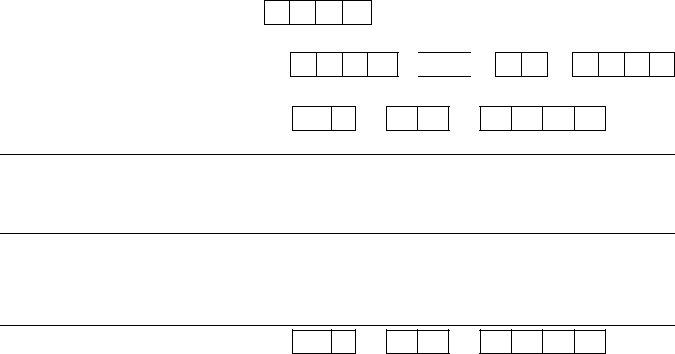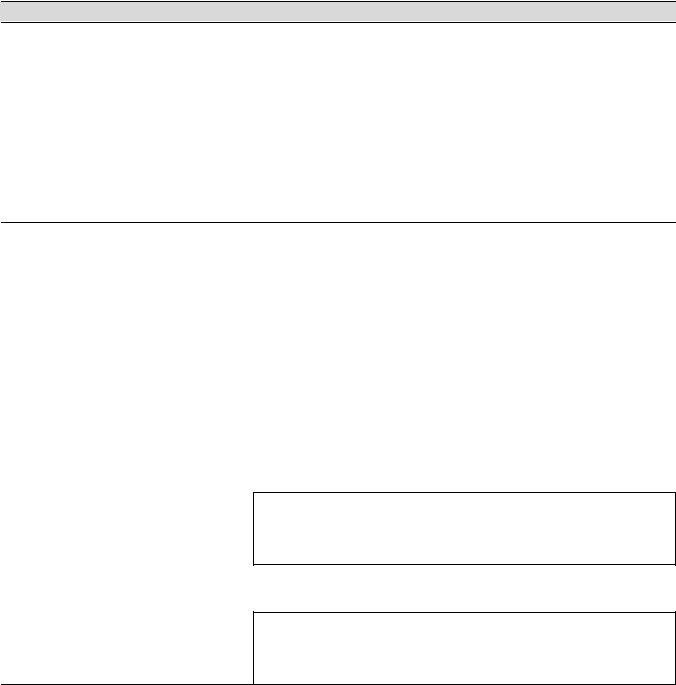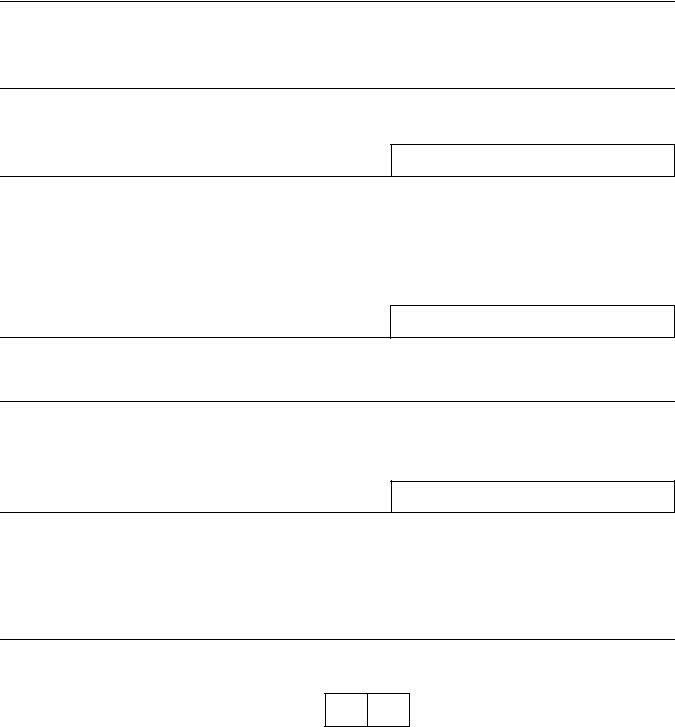In the realm of healthcare, maintaining stringent infection control practices is paramount, especially within ambulatory surgical centers (ASCs) where the risk of infection can significantly impact patient safety and outcomes. To this effect, the Infection Control Surveyor Worksheet serves as a crucial tool designed to assess compliance with established infection control Condition for Coverage. This comprehensive worksheet mandates thorough on-site evaluations by surveyors, encompassing a broad spectrum of items which are examined primarily through direct observation and complemented by interviews. These interviews ideally involve staff members most knowledgeable about specific infection control practices, ranging from sterilization protocols to the handling of surgical instruments. Even the observation of a minimum of one surgical procedure forms a part of this evaluation, ensuring a wide-ranging assessment that covers the characteristics of the ASC, such as the types of procedures performed, the patient demographics served, and the facility's ownership and operational details. Moreover, the worksheet delves into the ASC's infection control program, scrutinizing its adherence to nationally recognized infection control guidelines, the qualification and training of personnel dedicated to infection control, and the mechanisms in place for identifying and tracking infection-related incidents post-procedure. Additionally, the worksheet evaluates the infection control training provided to staff members, emphasizing the importance of ongoing education in maintaining high standards of infection prevention and control. This meticulous approach embodied in the Infection Control Surveyor Worksheet underscores a commitment to safeguarding public health by ensuring ASCs operate within the highest standards of infection control.
| Question | Answer |
|---|---|
| Form Name | Infection Control Worksheet Form |
| Form Length | 15 pages |
| Fillable? | Yes |
| Fillable fields | 83 |
| Avg. time to fill out | 20 min 21 sec |
| Other names | surveyor worksheet, infection control worksheet printable, cms cop infection control worksheet, control surveyor worksheet |

Attachment |
Exhibit 351 |
|
INFECTION CONTROL SURVEYOR WORKSHEET |
Name of State Agency or AO (please print at right) _________________________________________________
Instructions: The following is a list of items that must be assessed during the on‐site survey, in order to determine compliance with the infection control Condition for Coverage. Items are to be assessed primarily by surveyor observation, with interviews used to provide additional confirming evidence of observations. In some cases information gained from interviews may provide sufficient evidence to support a deficiency citation.
The interviews and observations should be performed with the most appropriate staff person(s) for the items of interest (e.g., the staff person responsible for sterilization should answer the sterilization questions).
A minimum of one surgical procedure must be observed during the site visit, unless the ASC is a low volume ASC with no procedures scheduled during the site visit. The surveyor(s) must identify at least one patient and follow that case from registration to discharge to observe pertinent practices. For facilities that perform brief procedures, e.g., colonoscopies, it is preferable to follow at least two cases.
When performing interviews and observations, any single instance of a breach in infection control would constitute a breach for that practice.
Citation instructions are provided throughout this instrument, indicating the applicable regulatory provision to be cited on the Form CMS‐2567 when deficient practices are observed.
PART 1 – ASC CHARACTERISTICS |
|
|
|
|
|
|
|
|
|
|
|
|||
1. ASC Name (please print) |
|
|
|
|
|
|
|
|
|
|
|
|||
2. Address, State and Zip Code |
|
|
|
|
|
|
|
|
|
|
|
|
|
|
|
|
|
|
|
|
|
|
|
|
|
|
|
|
|
|
|
|
|
|
Address |
|
|
|
|
|
|
|||
(please print) |
|
|
|
|
|
|
|
|
||||||
|
|
|
|
|
|
|
|
|
|
|
||||
|
|
|
|
|
|
|
|
|
|
|
|
|
|
|
|
|
City |
|
|
State |
|
|
Zip |
||||||
|
|
|
|
|
|
|
|
|
|
|
|
|
|
|
3. 10‐digit CMS Certification Number |
|
|
|
|
|
|
|
|
|
|
|
|
|
|
|
|
|
|
|
|
|
|
|
|
|
|
|
|
|
4.What year did the ASC open for operation?
5. Please list date(s) |
|
|
|
/ |
|
|
of site visit: |
m m |
|
d d |
|||
y y y y
/
y y y y
to m m
/
/
d d y y y y
6.What was the date of the most recent previous federal (CMS) survey:
/
m m
/
d d y y y y
PLEASE COMPLETELY FILL IN EACH BUBBLE USING A DARK PEN.
7. Does the ASC participate in Medicare via accredited “deemed” status? |
YES |
|
NO |
||
|
7a. If YES, by which CMS‐ recognized accreditation organization?
(Check only ONE):
Accreditation Association for Ambulatory Health Care (AAAHC)
American Associate for Accred. of Ambulatory Surgery Facilities (AAAASF)
American Osteopathic Association (AOA)
The Joint Commission (TJC)
7b. If YES, according to the ASC, what was the date of the most recent accreditation survey?
/
m m
/
d d y y y y
1 of 15

8. What is the ownership of the |
|
Physician‐owned |
|
facility? |
|
Hospital‐owned |
|
|
|||
|
National corporation (including joint ventures with physicians) |
||
|
|
|
|
|
Other (please print): |
|
|
|
|
|
|
9. What is the primary procedure performed at the |
10. What additional procedures are performed at the |
ASC (i.e., what procedure type reflects the majority of |
ASC? (Fill in all that apply) |
procedures performed at the ASC)? |
Do not include the procedure type indicated in |
(Fill in only ONE bubble) |
question 9. |
Dental
Endoscopy
Ear/Nose/Throat
OB/Gyn
Ophthalmologic
Orthopedic
Pain
Plastic/reconstructive
Podiatry
Other (please print):
Dental
Endoscopy
Ear/Nose/Throat
OB/Gyn
Ophthalmologic
Orthopedic
Pain
Plastic/reconstructive
Podiatry
Other (please print):
|
11. Who does the ASC perform |
|
Pediatric patients only |
|
|
|
|
|
|
|
|
|
|
|
||||
|
procedures on? |
|
Adult patients only |
|
|
|
|
|
|
|
|
|
|
|
|
|
||
|
(Fill in only ONE bubble) |
|
Both pediatric and adult patients |
|
|
|
|
|
|
|
|
|||||||
|
|
|
|
|
|
|
|
|
|
|
|
|
|
|
|
|
|
|
|
12. What is the average number of |
|
|
|
|
|
|
|
|
|
|
|
per month |
|
||||
|
procedures performed at the ASC |
|
|
|
|
|
|
|
|
|
|
|
|
|
||||
|
per month? |
|
|
|
|
|
|
|
|
|
|
|
|
|
|
|
|
|
|
|
|
|
|
|
|
|
|
|
|
|
|
|
|
|
|
||
|
13. How many Operating Rooms (including procedure |
|
|
|
|
|
|
|
|
|||||||||
|
rooms) does the ASC have? |
|
1 |
|
2 |
3 |
|
|
4 |
|
5 |
6 |
7 |
8 |
9+ |
|||
|
Number actively maintained: |
|
|
|
|
|
|
|
|
|
|
|||||||
|
|
1 |
|
2 |
3 |
|
|
4 |
|
5 |
6 |
7 |
8 |
9+ |
||||
|
|
|
|
|
|
|
|
|||||||||||
14. Please indicate how the following services are provided: (fill in all that apply) |
|
|
|
|
|
|
||||||||||||
|
|
|
Contract |
Employee |
Other |
|
|
|
|
|
If Other, Please print: |
|
||||||
|
|
|
|
|
|
|
|
|
|
|
|
|
|
|
|
|
||
Anesthesia |
|
|
|
|
|
|
|
|
|
|
|
|
|
|
|
|||
Environmental Cleaning |
|
|
|
|
|
|
|
|
|
|
|
|
|
|
|
|||
|
|
|
|
|
|
|
|
|
|
|
|
|||||||
Linen |
|
|
|
|
|
|
|
|
|
|
|
|
|
|
|
|||
|
|
|
|
|
|
|
|
|
|
|
|
|||||||
Nursing |
|
|
|
|
|
|
|
|
|
|
|
|
|
|
|
|||
|
|
|
|
|
|
|
|
|
|
|
|
|||||||
Pharmacy |
|
|
|
|
|
|
|
|
|
|
|
|
|
|
|
|||
|
|
|
|
|
|
|
|
|
|
|
|
|||||||
Sterilization/Reprocessing |
|
|
|
|
|
|
|
|
|
|
|
|
|
|
|
|||
|
|
|
|
|
|
|
|
|
|
|
|
|||||||
Waste Management |
|
|
|
|
|
|
|
|
|
|
|
|
|
|
|
|||
|
|
|
|
|
|
|
|
|
|
|
|
|||||||
|
|
|
|
|
|
|
|
|
|
|
|
|
|
|
|
|
|
|
|
|
|
|
|
|
|
|
|
|
|
|
|
|
|
|
|
2 of 15 |
|

INFECTION CONTROL PROGRAM
15. Does the ASC have an explicit infection control program? |
YES |
|
NO |
||
|
NOTE! If the ASC does not have an explicit infection control program, a condition‐level deficiency related to 42 CFR 416.51 must be cited.
16. Does the ASC’s infection control program follow nationally recognized infection |
|
YES |
control guidelines? |
|
NO |
NOTE! If the ASC does not follow nationally recognized infection control guidelines, a deficiency related to 42 CFR 416.51(b) must be cited. Depending on the scope of the lack of compliance with national guidelines, a condition‐level citation may also be appropriate.
16a. Is there documentation that the ASC considered and selected nationally‐ |
YES |
|
recognized infection control guidelines for its program? |
NO |
|
|
|
|
|
|
|
16b. Which nationally‐ |
CDC/HICPAC Guidelines: |
|
recognized infection |
Guideline for Isolation Precautions (CDC/HICPAC) |
|
control guidelines has |
Hand hygiene (CDC/HICPAC) |
|
the ASC selected for its |
|
|
|
|
|
program? |
Disinfection and Sterilization in Healthcare Facilities (CDC/HICPAC) |
|
(Fill in all that apply) |
|
|
Environmental Infection Control in Healthcare Facilities (CDC/HICPAC) Perioperative Standards and Recommended Practices (AORN)
Guidelines issued by a specialty surgical society / organization (List)
Please specify (please print and limit to the space provided):
Others
Please specify (please print and limit to the space provided):
NOTE! If the ASC cannot document that it considered and selected specific guidelines for use in its infection control program, a deficiency related to 42 CFR 416.51(b) must be cited. This is the case even if the ASC’s infection control practices comply with generally accepted standards of practice/national guidelines. If the ASC neither selected any nationally recognized guidelines nor complies with generally accepted infection control standards of practice, then the ASC should be cited for a condition‐level deficiency related to 42 CFR 416.51.
3 of 15

17. Does the ASC have a licensed health care professional qualified through training YES
in infection control and designated to direct the ASC’s infection control program? |
NO |
|
NOTE! If the ASC cannot document that it has designated a qualified professional with training (not necessarily certification) in infection control to direct its infection control program, a deficiency related to 42 CFR 416.51(b)(1) must be cited. Lack of a designated professional responsible for infection control should be considered for citation of a condition‐level deficiency related to 42 CFR 416.51.
|
17a. If YES, Is this person an: |
|
|
|
ASC employee |
||||||
|
(Fill in only ONE bubble) |
|
|
|
ASC contractor |
||||||
|
|
|
|
|
|
|
|
|
|
|
|
|
|
|
|
|
|
|
YES |
||||
|
17b. Is this person certified in infection control (i.e., CIC) ( |
Note: §416.50(b)(1) |
|||||||||
|
does not require that the individual be certified in infection control. |
) |
NO |
||||||||
|
|
|
|
|
|
|
|
|
|
|
|
17c. If this person is NOT certified in |
|
|
|
|
|
|
|
|
|
|
|
infection control, what type of infection |
|
|
|
|
|
|
|
|
|
|
|
control training has this person received? |
|
|
|
|
|
|
|
|
|
|
|
|
17d. On average, how many hours per week |
|
|
|
hours per week |
||||||
|
|
|
|
||||||||
does this person spend in the ASC directing |
|
|
|
||||||||
the infection control program? |
|
|
|
|
|
|
|
|
|
||
|
|
|
|
|
|
|
|
|
|||
(Note: §416.51(b)(1) does not specify the amount of time the person must spend in the ASC directing the |
|
|
|||||||||
infection control program, but it is expected that the designated individual spends sufficient time on‐site |
|
|
|
||||||||
directing the program, taking into consideration the size of the ASC and the volume of its surgical activity. |
) |
||||||||||
18. Does the ASC have a system to actively identify infections that may have been |
YES |
||||||||||
related to procedures performed at the ASC? |
|
|
|
NO |
|||||||
18a. If YES, how does the ASC |
|
The ASC sends e‐mails to patients after discharge |
||
obtain this information? |
|
The ASC follows‐up with their patients’ primary care providers after |
||
(Fill in ALL that apply) |
||||
|
discharge |
|||
|
|
|||
|
The ASC relies on the physician performing the procedure to obtain |
|||
|
|
this information at a follow‐up visit after discharge, and report it to |
||
|
|
the ASC |
||
|
|
|
|
|
|
Other (please print): |
|
||
|
|
|
|
|
18b. Is there supporting documentation confirming this tracking activity? |
YES |
|
NO |
||
|
NOTE! If the ASC does not have an identification system, a deficiency related to 42 CFR 416.44(a)(3) and 42 CFR 416.51(b)(3) must be cited.
18c. Does the ASC have a policy/procedure in place to comply with State |
|
YES |
notifiable disease reporting requirements? |
|
NO |
NOTE! If the ASC does not have a reporting system, a deficiency must be cited related to 42 CFR 416.44(a)(3). CMS does not specify the means for reporting; generally this would be done by the State health agency.
4 of 15

19. Do staff members receive infection control training? |
YES |
|
NO |
||
|
19a. If YES, how do they receive infection control training?
(Fill in all that apply)
In‐service
Computer‐based training
Other (please print):
19b. Which staff members receive infection control training?
(Fill in all that apply)
Medical staff
Nursing staff
Other staff providing direct patient care
Staff responsible for on‐site sterilization/high‐level disinfection
Cleaning staff
Other (please print):
19c. Is training: |
the same for all categories of staff |
|
|
|
different for different categories of staff |
19d. Indicate frequency of staff infection control training
(Fill in all that apply)
Upon hire
Annually
Periodically / as needed
Other (please print):
19e. Is there documentation confirming that training is provided to all |
|
YES |
categories of staff listed above? |
|
NO |
NOTE! If training is not provided to appropriate staff upon hire/granting of privileges, with some refresher training thereafter, a deficiency must by cited in relation to 42 CFR 416.51(b) and (b)(3). If training is completely absent, then consideration should be given to condition‐level citation in relation to 42 CFR 416.51, particularly when the ASC’s practices fail to comply with infection control standards of practice.
20. How many procedures were |
|
|
|
|
|
observed during the site visit? |
1 |
2 |
3 |
4 |
Other |
|
|
|
|
|
|
If other, please print the number:
procedures
5 of 15